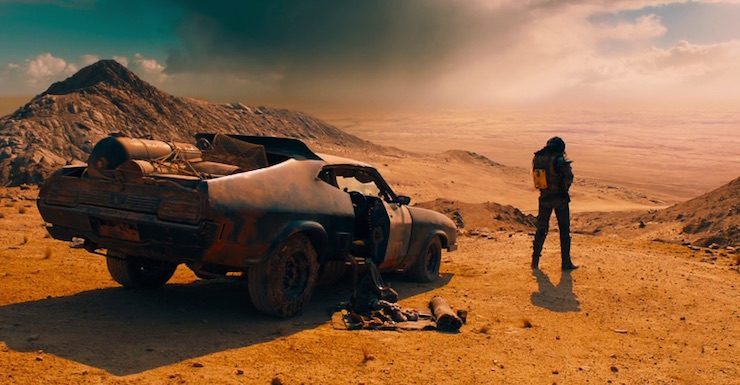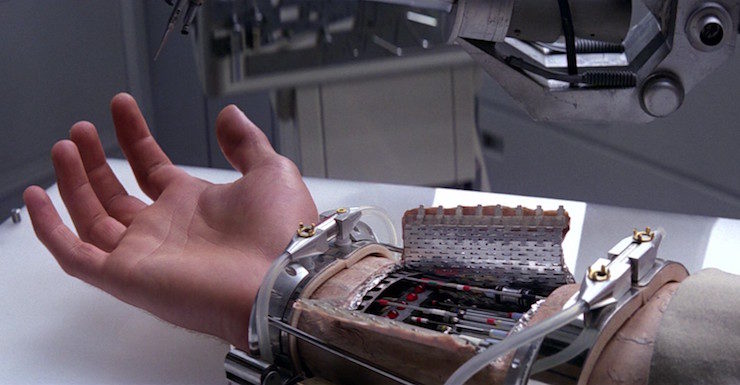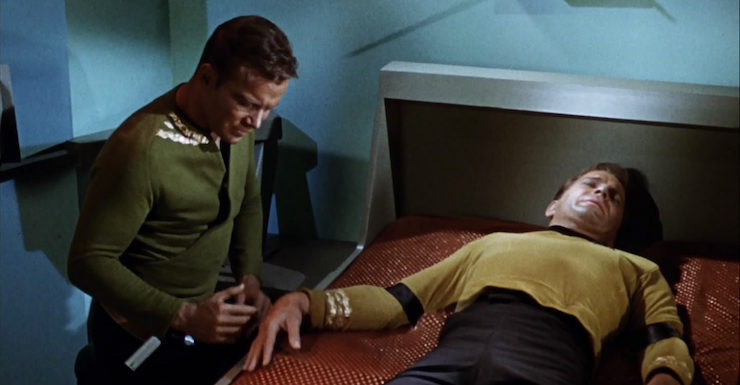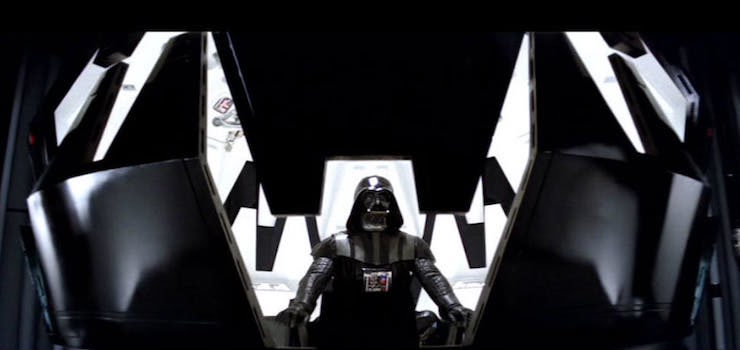The Ship of Theseus is a thought experiment first posited by Plutarch in Life of Theseus. It goes a little something like this:
A ship goes out in a storm and is damaged. Upon returning to shore, the ship is repaired, with parts of it being replaced in the process. Again and again the ship goes out, and again it is repaired, until eventually every single component of the ship, every plank of wood, has been replaced.
Is the repaired ship still the same ship that first went out into the storm? And if not, then at what point did it become a different ship?
Now, say you collected every part of the ship that was discarded during repairs, and you used these parts to rebuild the ship. With the two ships side-by-side, which one would be the true Ship of Theseus? Or would it be both? Or neither?
There’s no single answer to the problem, no correct one, just the looming question: what is the intrinsic thingness of a thing? But the thought experiment has captured my attention because, even though it is thousands of years old, it’s still relevant today. It’s given me a new way to look at some of my favourite bits of pop-culture, some of the technologies used in science fiction, and by extension, a valid frame by which to look at some of the technologies we may be using in the future.
Mad Max: Fury Road opens with Max overlooking a vast dead vista, with only his haunting memories and Ford V8 Interceptor for company. The car will be familiar to anyone who’s watched any of the Mad Max films—it’s served Max across the decades, and across countless miles of post-apocalyptic desert road. But while Max is busy trying to outrun his memories, something else catches up to him—a War Boy patrol. In attempting to flee, Max’s car is wrecked, flipping side over side, coming to a stop on its roof, chassis mangled, axles likely bent or broken, engine mounts the same.
We cut ahead some indeterminate time later, and Max has been turned into a blood bag for ailing War Boys. Strapped to the front of a pursuit vehicle, Max spies something familiar beside him: the Ford V8 Interceptor.
The Interceptor has been rebuilt—the rear suspension has been raised up, Max’s extra fuel barrels have been removed to make space for weaponry, and the paint job has been cut back to bare metal for that “shiny and chrome” look. Still, Max sees his car in this altered beast—whether it’s the long sweeping shape of the coupe’s body, or in some other, indefinably spiritual aspect of the vehicle. Or perhaps Max simply knows he’s dead without a car, and the rebuilt Interceptor is a familiar set of wheels—any port in a storm.

For another example of the Ship of Theseus paradox from the same film, take Furiosa. Her left arm ends just below the elbow, and for much of the film she wears a prosthetic made from metal—but at no point does the film suggest that the intrinsic nature of Furiosa is defined by this prosthetic limb. Scrapping in the dirt with Max upon their first meeting, Furiosa’s prosthetic arm hangs from the side of the War Rig, but she is in no way hindered by its absence, fighting brutally to protect the women under her charge. This might sound obvious—of course Furiosa is just as fierce, just as much herself with or without the arm—but things aren’t always so clear.
In Return of the Jedi we see the Ship of Theseus rear its much-repaired face yet again. Luke Skywalker and the Force ghost of Obi-Wan Kenobi debate the humanity of Anakin Skywalker/Darth Vader, and in making his point, Obi-Wan states that Vader is beyond redemption because he is “more machine than man.” Whether it’s simply the loss of Anakin’s biological body, or some other change that has happened to the man, Obi-Wan sees Darth Vader as a different person, separate from Anakin Skywalker. As far as Obi-Wan is concerned, too many planks in the Ship of Anakin have been replaced. Luke argues otherwise—that despite the fact that Anakin has lost his limbs and needs to rely on a life-supporting suit of armour, he is at heart, the same man.
Now, Luke himself lost a hand at the end of Empire Strikes Back, and had it replaced with an organic-looking robotic prosthetic, but Obi-Wan doesn’t appear to have any issues with the altered Luke. So apparently, according to Obi-Wan, somewhere between replacing a single hand and replacing four limbs, a person may cease to be their true self.

In Altered Carbon, the society and justice system seem to hold that a person’s digitised consciousness—which is able to be swapped between bodies for a price—is their true self, regardless of what body it may be sleeved inside. Even so, within the world of the book (and television series), there is a Catholic sect that holds that a person’s soul cannot be digitised, and as such, after the death of the original body, a person cannot truly be shifted between bodies—that despite a consistent personality and memories, the person’s soul is not present, and without a soul it is not the same person.
Say I had a heart transplant. Would the presence of that foreign tissue somehow alter who I am? Would I be somehow less “myself,” whatever that means? Or, if a person uses a prosthetic limb, which self is more “them”: the self with four limbs, one of which is prosthetic, or the self with three limbs? I would argue that in terms of a person’s essence (again, difficult to define, but the thing that makes you you), there is no difference. I think that no matter the changes made to a person’s body, if their mind is still functioning in whatever is their own version of “normal,” then they would remain their intrinsic self. Anakin Skywalker became Darth Vader because of his choices, not because of an arbitrary amount of flesh being replaced with machine parts (which is likely the argument Obi-Wan meant to make, but is not the one he actually made).
Now, what if we take this problem into the future. How would an uploaded digital consciousness fare against the Ship of Theseus problem? If my mind was recreated perfectly in a digital format, would it in fact be me? What if my fleshy meatsack self was still alive? Would that change your answer? What if me, in this current body had to argue with my digitised self to decide which me was the real me? Is that a debate I could win? Is that a debate that either of me could win?

What about teleportation? If my body was broken down at Point A and transmitted instantaneously to Point B where it was reconstituted, is the person at the other end still me? Or is it some new person who simply looks like me, acts like me, and indeed believes itself to be me? If the me at Point A and the me at Point B are indistinguishable from one another, then does it matter? If you believe in the concept of the human soul, then can the soul also be broken down and reconstituted post-teleportation? Or does it travel the distance itself in its own unknowable way? Or is the person at the other end a soul-less recreation of the original, now dead, person? And most importantly—how would you know?
What about clones? We’ve been able to clone sheep and other animals for a while now, but what if you cloned a human embryo, and brought both embryos to term? Even if you raised both children as if they were identical twins, would one somehow be lesser than the other? If the clone lived as their own person, would they still be a hollow recreation of the ‘real’ person born from the original embryo, or would they be a person with their own intrinsic, indefinable nature? I’d argue that each Ship of Theseus was the real Ship of Theseus, and each was also something else.
Lastly…what makes you you? Is it your body? If so, what happens when you grow older and things don’t work quite as well as they used to? Is it your memories? If so, what happens when some of those memories fade? Is it entirely arbitrary? Is it somehow indefinable? In what ways could you be altered and changed without it affecting your inherent sense of self? These are the sorts of existential questions that philosophy has me thinking about. Thanks, philosophy.
Shows like The Good Place, Westworld, and Black Mirror make it obvious that they’re posing philosophical and metaphysical questions to the viewer— but if you start looking you’ll find various philosophical conundrums hiding in all sorts of places, giving your favourite bits of pop-culture whole new layers of meaning and depth. Where else have you found philosophical paradoxes hiding (or not) in pop-culture? And what other examples of The Ship of Theseus have I missed?
Note: I have to give credit (blame?) where credit is due: my entire philosophical education is the result of watching The Good Place, and reading the work of Damien Williams and m1k3y. If you also want to occasionally trigger an existential crisis while thinking too deeply about science fiction, and also delve deeper into philosophical concepts without hurting your head too much, I highly recommend you check them out.
 Corey J. White is a writer of science fiction, horror, and other, harder-to-define stories. He studied writing at Griffith University and is now based in Melbourne, Australia. Killing Gravity and its sequel, Void Black Shadow, are available from Tor.com Publishing. Find him at coreyjwhite.com and on Twitter at @cjwhite.
Corey J. White is a writer of science fiction, horror, and other, harder-to-define stories. He studied writing at Griffith University and is now based in Melbourne, Australia. Killing Gravity and its sequel, Void Black Shadow, are available from Tor.com Publishing. Find him at coreyjwhite.com and on Twitter at @cjwhite.










